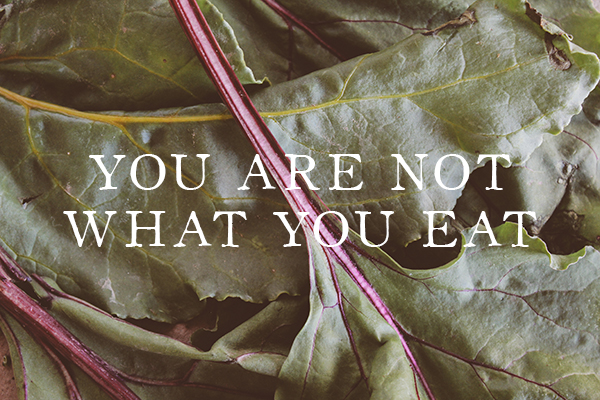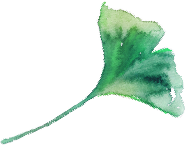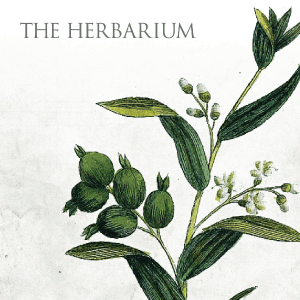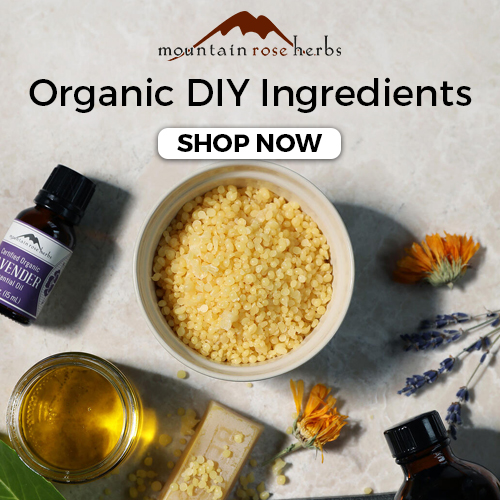
Just a few years ago when I was a graduate student at the Maryland University of Integrative Health, I was living within the bubble of physiology, herbal medicine, holistic health and scientific journals. I was learning the many “right” ways to eat, the nutritional content of x, y and z, and clinical assessment and application skills to guide people along their new health path. We all spoke the same language at school, had the same ideals and goals – it was easy to live within that bubble of a community. We all understood one another.
Nearing graduation time, I had a seriously necessary wake up call during a routine trip to the grocery store. I was in the produce section, stocking up on vegetables and fruits and fermented delights when a stranger standing beside me gazed into my basket, up at me, and then back to my basket again. With a slight roll of the eyes and fatherly tone he said,
“Oh, you’re one of those ‘healthy’ eaters huh?”
I didn’t really now how to take that, and all I could think to say in the moment was,
“Why else would I eat…?”
After he walked off, I instinctively felt a little hurt, judged and immediately wanted to defend my food choices and educate him on the benefits of a “good” diet. But something stopped me that I couldn’t really explain. I remember thinking in that moment that my grocery basket wasn’t really who I am, and his remarks aren’t really who he is either. Somehow I became transparent and his judgements passed right through me. It wasn’t until fairly recently that I was able to fully understand my budding epiphany and realize that, despite what advertising constantly tells us, I am not what I eat.
I’ve come to realize that we all have developed a strong sense of identity over our lifetime, whether from our memories, experiences, hardships, relationships – it doesn’t matter. We have a strong sense of self, of the me-and-my-story. We become kind of obsessed with our story and think it is who we are. We have a constant urge to defend ourselves and to label ourselves in order to maintain and strengthen our identity. This is why so many people are attached to their political labels, religious labels, sports teams, universities and even diets. We become so obsessed with this label that it actually feels like it is part of us – like another limb. We become so attached that when people judge or contradict our actions or thoughts, we feel this as an attack on our self – our pseudo identity.
I see this in the food world over and over again. As a nutritionist, I see labels thrown around all of the time. This person is on the paleo diet, this person is vegan, this person is raw, this person is on the Atkins diet etc etc. It’s interesting also to observe the extent to which their food restrictions define them, and the habits many people fall into once they have labeled their dietary choices. Hence the stereotypes: You can find all of the paleo folks at CrossFit; The vegans are all at the Rainbow Gathering; The Raw foodies are out there waving kale flags, you get the idea. Food fads have become cliche due to the behavior surrounding them. Behavior is now associated with food, and I can completely see why. I can also see how terribly difficult it will be for people to break this cycle, and for food choices to become instinctive and personal choices again. Once we take away the identity that people attach to diets, people feel they lack part of their identity, but there is no need to feel this way.
This is where becoming more present and transparent comes into play. To me, this is the absolute most important part of choosing a health plan. Being able to disassociate with the food culture and your labels is essential before you can attain your optimal health. Can you step away from the labels and food culture and still feel true health and still maintain your sense of identity without your food story? The moment you identify with your label – when you feel you need to defend this pseudo image of who you are – you have ignored your body’s innate wisdom to just BE as you are – not what you eat. Being in tune with your body (being present in each and every moment) is essential because the body knows what it needs. Overeating for example, sometimes happens when you are unaware and unconscious of your actions. Loudly defending your food choices and trying to bring people down your dietary path is useless if the other person is not ready to make a change. Food is personal, just like our own body is a personal space. We eat to survive, not to develop identity.
So how can we practice this? Letting go of labels and finding our sense of self is not going to happen overnight because our mental chatter is really good at getting us back into patterns that do not serve us. One of my favorite authors, Eckhart Tolle, offers this as a good practice: The next time you feel the need to defend your decisions, or the next time you are feeling judged or hurt by another’s words and criticisms, imagine yourself as transparent, with the words flowing right through you. These words often hit us like a wall, and we unconsciously deflect something back immediately. Rather, breathe and let it flow through you. There is no need to try and strengthen a label or your perceived sense of self. You are who you are in the moment, and no words will change that. Also, notice when you are passing judgement on another. Once you become aware of this unconscious pattern, you may be floored by how many times each day this habit arises.
Bottom line, we all have the ability to make this shift. I applaud those who have found their own balance in their version of “healthy” from the medicine that food gives us and the lifestyle choices that bring them balance. If that comes from being vegetarian, anything-and-everything, gluten free or pescetarian- congratulations! Food truly has profound effects on the human body. Your sense of life and self are not diminished or enhanced by another’s opinion of your choices.








